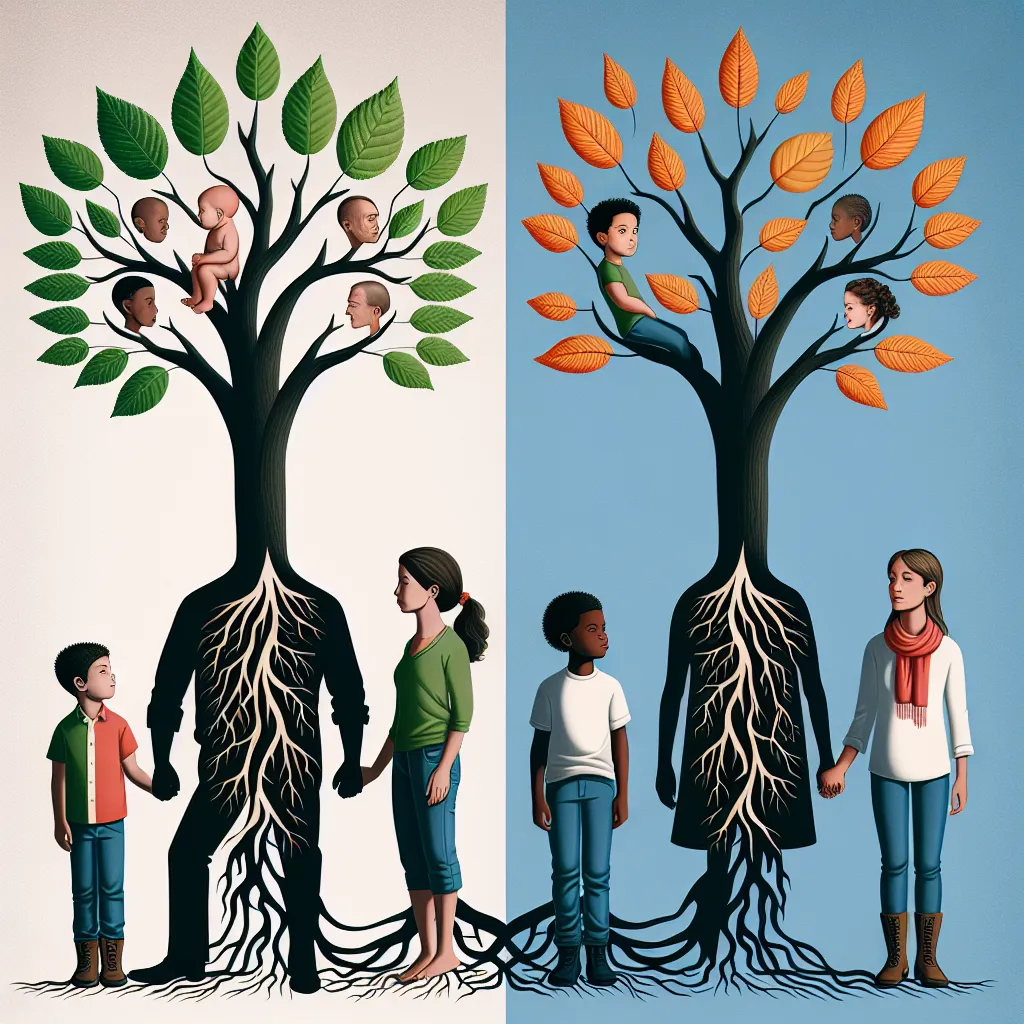As parents, it is often wondered how much influence our personalities have on our children. Are our little ones doomed to repeat our mistakes, or will they learn to chart their own path, unaffected by our character traits? The complexity of personality inheritance and parenting effects has been a topic of psychological investigation for decades. Here we explore the various aspects of how parental personalities can shape the lives and behaviors of children.
Personality, as defined by psychology, comprises the long-term patterns of thoughts, feelings, and behaviors that distinguish individuals from one another. When it comes to parenting, personality traits such as openness, conscientiousness, extroversion, agreeableness, and neuroticism – often referred to as the “Big Five” personality traits – can create a unique parental influence landscape.
Openness, which reflects how willing an individual is to accept new ideas, creativity, and curiosity, can profoundly affect a child’s intellectual and emotional development. A parent with high openness is likely to expose their child to a variety of experiences, fostering a love of learning and an appreciation for diversity. This can develop into a sense of creativity and a broad interest range in children. Conversely, a parent with low openness might protect their child from new experiences, potentially stunting their exploratory and creative growth.
Conscientiousness, which involves self-discipline, organizational skills, and a preference for planned rather than spontaneous behavior, also plays a crucial role in parent-child dynamics. Highly conscientious parents are more likely to establish structured environments with clear rules and expectations, which can be beneficial in teaching children self-discipline and responsibility. However, excessive conscientiousness may also limit a child’s ability to develop adaptability and may put a lot of pressure on a child to meet high standards.
Extroversion, characterized by energy, positive emotions, and a tendency to seek stimulation in the company of others, influences parental interaction styles. Extroverted parents are often more engaged in their children’s social development, providing them with ample opportunities to interact with others and develop their social skills. Energetic and talkative parents might encourage their children to be outgoing as well, although children with introverted personalities might struggle with this expectation.
Agreeableness, which includes attributes such as kindness, trust, and altruism, affects how harmonious parent-child relationships are. Parents high in agreeableness are typically more empathetic and supportive, fostering a nurturing environment. This can result in children developing a strong sense of security and positive interpersonal skills. On the flip side, excessively agreeable parents might have difficulty enforcing discipline, which can lead to difficulties with boundaries as children grow.
Neuroticism, which involves the tendency to experience emotional instability, anxiety, and moodiness, can be challenging in a parenting context. Highly neurotic parents may inadvertently model stress and anxiety coping behaviors that can be adopted by their children. This can impact a child’s emotional regulation and stress responses. However, parents aware of their high neuroticism might actively work to prevent negative impacts on their children by utilizing support systems or engaging in stress-reducing activities.
The interplay between a parent’s personality and their child’s development is not solely a direct one. Aside from the direct modeling of behaviors, parental personality shapes the overall family environment which, in turn, affects a child’s development. For instance, a highly organized and disciplined parent might create a home atmosphere that emphasizes academic achievement. However, there is a danger that such an environment might place undue pressure on a child or quash creative and personal growth in areas outside of academic performance.
Parenting styles, as distinct from personality, also play into how influential personality traits can be. Authoritative, authoritarian, permissive, and neglectful are common types of parenting styles that interact with parental personality in complex ways. For example, a highly neurotic, authoritarian parent might be overly controlling or punitive, possibly leading to more profound effects on a child’s development as compared to a highly neurotic but authoritative parent who combines high expectations with warmth and support.
It is also essential to understand that children are not passive recipients of their parental influences. They have their personalities, which can clash or harmonize with their parents’ traits. A child who is naturally disagreeable might resist a highly agreeable parent’s nurturing tendencies, which can either temper the child’s disagreeableness or escalate tensions within the relationship.
Genetic dispositions are another aspect that contributes to the multi-faceted relationship between parental personality and children’s development. While parents do pass on genetic traits to their offspring that can influence personality, the expression of these traits can be moderated by environmental factors, including parenting styles and cultural influences. This area of research, often called behavioral genetics, attempts to tease apart the influences of nature and nurture on personality development.
Furthermore, socio-cultural factors massively contribute to this complex equation. Cultural norms affect how parental personality traits are perceived and valued, which can then influence parenting practices and, subsequently, child development. For example, in some cultures, high extroversion might be encouraged and valued, whereas in others, more reserved and contemplative traits might be seen as preferable.
Parenting, undoubtedly, is not an exact science, and there’s no one-size-fits-all approach to how personality affects children. To truly gauge the influence of parental personality on children, one must consider the dynamic and reciprocal nature of the parent-child relationship. It is a complex interplay of genetics, individual personalities, environmental contexts, and the unique bond each parent shares with their child.
What remains clear, however, is the importance of self-awareness in parenting. Understanding one’s personality and how it might affect one’s parenting helps in identifying areas of strength and areas where one might need to adjust or compensate in the best interest of the child’s development. Parenting strategies should ideally complement parental personality traits while providing children with the love, support, and guidance they need to develop into well-rounded individuals.
In conclusion, the influence of parental personality on children is significant but impossible to view in isolation. It’s the interwoven effects of personality, genetics, environment, and individual differences that culminate in the unique development path of each child. As research continues to unfold the mysteries of personality and development, it’s crucial that parents stay informed and reflective, applying their understanding of personality not as a deterministic blueprint for their child’s future, but as one of many tools in nurturing their growth and well-being.



Leave a Comment